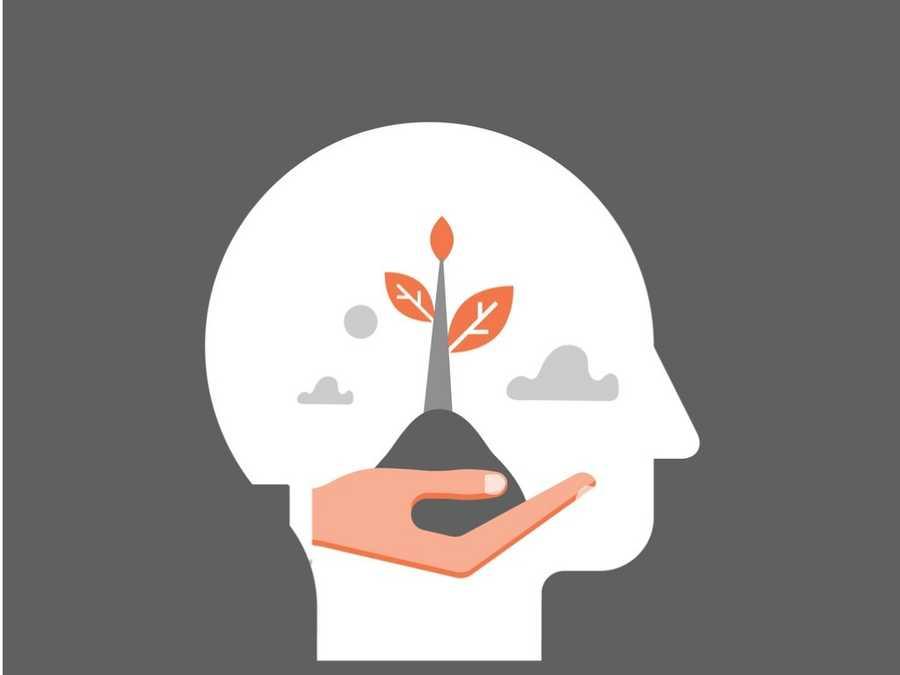Explore the World's Best Ideas
Join today and uncover 100+ curated journeys from 50+ topics. Unlock access to our mobile app with extensive features.
What is happiness
Happiness is an emotional state characterized by feelings of joy, satisfaction. contentment and fulfillment.
While happiness has many different definitions, it is often described as involving positive emotions and life satisfaction.
209
2.44K reads
Two key components of happiness
The balance of emotions: Everyone experiences both positive and negative emotions, feelings, and moods. Happiness is generally linked to experiencing more positive feelings than negative.
Life satisfaction: This relates to how satisfied you feel with different areas of your life including your relationships, work, achievements, and other things that you consider important.
197
885 reads
How to know if you're happy
One important thing to remember is that happiness isn't a state of constant euphoria. Instead, happiness is an overall sense of experiencing more positive emotions than negative ones.
Some key signs of happiness include:
- Feeling like you are living the life you wanted.
- Feeling that the conditions of your life are good.
- Feeling that you have accomplished (or will accomplish) what you want in life.
- Feeling satisfied with your life.
- Feeling positive more than negative.
210
823 reads
Types of happiness
Hedionia: hedonic happiness is derived from pleasureIt is most often associated with doing what feels good, self-care, fulfilling desires, experiencing enjoyment, and feeling a sense of satisfaction.
Eudaimonia: This type of happiness is derived from seeking virtue and meaning. Important components of eudaimonic well-being including feeling that your life has meaning, value, and purpose. It is associated more with fulfilling responsibilities, investing in long-term goals, concern for the welfare of other people, and living up to personal ideals.
Types of happiness that fall under the two main categories:
- Joy: A often relatively brief feeling that is felt in the present moment.
- Excitement: A happy feeling that involves looking forward to something with positive anticipation.
- Gratitude: A positive emotion that involves being thankful and appreciative.
- Pride: A feeling of satisfaction in something that you have accomplished.
- Optimism: This is a way of looking at life with a positive, upbeat outlook.
- Contentment: This type of happiness involves a sense of satisfaction.
- Love: love is an infinite source of happiness.
212
298 reads
how to practice
Pursue intrisic goals: Achieving goals that you are intrinsically motivated to pursue, particularly ones that are focused on personal growth and community, can help boost happiness. Research suggests that pursuing these types of intrinsically-motivated goals can increase happiness more than pursuing extrinsic goals like gaining money or status.
Enjoy the moment: Studies have found that people tend to over earn—they become so focused on accumulating things that they lose track of actually enjoying what they are doing.
So, rather than falling into the trap of mindlessly accumulating to the detriment of your own happiness, focus on practicing gratitude for the things you have and enjoying the process as you go.
Reframe negative thoughts: When you find yourself stuck in a pessimistic outlook or experiencing negativity, look for ways that you can reframe your thoughts in a more positive way. Reframing these negative perceptions isn't about ignoring the bad. Instead, it means trying to take a more balanced, realistic look at events. It allows you to notice patterns in your thinking and then challenge negative thoughts.
206
265 reads
Impact of happiness
Happiness has been shown to predict positive outcomes in many different areas of life.
- Positive emotions increase satisfaction with life.
- Happiness helps people build stronger coping skills and emotional resources.
- Positive emotions are linked to better health and longevity. One study found that people who experienced more positive emotions than negative ones were more likely to have survived over a 13 year period.
- Positive feelings increase resilience. Resilience helps people better manage stress and bounce back better when faced with setbacks. For example, one study found that happier people tend to have lower levels of the stress hormone cortisol and that these benefits tend to persist over time.
- People who report having a positive state of well-being are more likely to engage in healthy behaviors such as eating fruits and vegetables and engaging in regular physical exercise.
- Being happy may make help you get sick less often. Happier mental states are linked to increased immunity.
185
139 reads
Improving your happiness
Some people seem to have a naturally higher baseline for happiness—one large-scale study of more than 2,000 twins suggested that around 50% of overall life satisfaction was due to genetics, 10% to external events, and 40% to individual activities.
So while you might not be able to control what your “base level” of happiness is, there are things that you can do to make your life happier and more fulfilling. Even the happiest of individuals can feel down from time to time and happiness is something that all people need to consciously pursue.
181
261 reads
Get regular exercise
Exercise is good for both your body and mind. psysical activity is linked to a range of physical and psychological benefits including improved mood. Numerous studies have shown that regular exercise may play a role in warding off symptoms of depression, but evidence also suggests that it may also help make people happier, too.
Even a little bit of exercise produces a happiness boost—people who were physically active for as little as 10 minutes a day or who worked out only once a week had higher levels of happiness than people who never exercised.
178
199 reads
Show grattitude
In one study, participants were asked to engage in a writing exercise for 10 to 20 minutes each night before bed.
Some were instructed to write about daily hassles, some about neutral events, and some about things they were grateful for.
The results found that people who had written about gratitude had increase positive emotions, increased subjective happiness, and improve life satisfaction.
Try setting aside a few minutes each night to write down or think about things in your life that you are grateful for.
185
180 reads
Feel a sense of purpose
Research has found that people who feel like they have a purpose have better well-being and feel more fulfilled.
A sense of purpose involves seeing your life as having goals, direction, and meaning. It may help improve happiness by promoting healthier behaviors.
Some things you can do to help find a sense of purpose include:
- Explore your interests and passions
- Engage in prosocial and altruistic causes
- Work to address injustices
- Look for new things you might want to learn more about
This sense of purpose is influenced by a variety of factors, but it is also something that you can cultivate.
187
174 reads
Challenges
While seeking happiness is important there are times when the pursuit of life satisfaction falls short. Some challenges to watch for include:
- Valuing the wrong things
- Not seeking social support
- Thinking of happiness as an endpoint
180
250 reads
Valuing the wrong things
Money may not be able to buy hapiness, but there is research that spending money on things like experiences can make you happier that spending it on material possesions.
One study, for example, found that spending money on things that buy time—such as spending money on time-saving services—can increase happiness and life satisfaction.
Rather than overvaluing things such as money, status, or material possessions, pursuing goals that result in more free time or enjoyable experiences may have a higher happiness reward.
182
196 reads
Not seeking social support
Social support mean having friends and loved ones that you can turn to for support. Research has found that perceived social support plays an important role in subjective well-being.
For example, one study found that perceptions of social support were responsible for 43% of a person's level of happiness.
It is important to remember that when it comes to social support, quality is more important than quantity. Having just a few very close and trusted friends will have a greater impact on your overall happiness than having many casual acquaintances.
182
160 reads
Thinking of happines as an endpoint
Happiness isn't a goal you can simply reach and be done with. It is a constant pursuit that requires continual nurturing and sustenance.
One study found that people who tend to value happiness most also tended to feel the least satisfied with their lives. Essentially, happiness becomes such a lofty goal that it becomes virtually unattainable.
“Valuing happiness could be self-defeating because the more people value happiness, the more likely they will feel disappointed,”
Perhaps the lesson is to not make something as broadly defined as “happiness” your goal. Instead, focus on building and cultivating the sort of life and relationships that bring fulfillment and satisfaction to your life.
It is also important to consider how you personally define happiness. Happiness is a broad term that means different things to different people. think about what it means for you.
180
117 reads
History of happiness
Happiness has long been recognized as a critical part of health and well-being. The "pursuit of happiness" is even given as an inalienable right in the U.S. Declaration of Independence. Our understanding of what will bring happiness, however, has shifted over time.
Psychologists have also proposed a number of different theories to explain how people experience and pursue happiness. These theories include:
172
160 reads
Maslow's hierarchy of needs
The hierarchy of need suggests that people are motivated to pursue increasingly complex needs.
Once more basic needs are fulfilled, people are then motivated by more psychological and emotional needs.
At the peak of the hierarchy is the need for self-actualization, or the need to achieve one's full potential.
The theory also stresses the importance of peak experiences or transcendent moments in which a person feels deep understanding, happiness, and joy.
180
186 reads
Positive psychology
The pursuit of happiness is central to the field of positve psychology.
Psychologists who study positive psychology are interested in learning ways to increase positivity and helping people live happier, more satisfying lives.
Rather than focusing on mental pathologies, the field instead strives to find ways to help people, communities, and societies improve positive emotions and achieve greater happiness.
194
582 reads
IDEAS CURATED BY
I'm passionate about helping people live their best lives. I'm a lifestyle coach & burnout coach.
Rogier. H's ideas are part of this journey:
Learn more about psychology with this collection
Identifying and eliminating unnecessary expenses
How to negotiate better deals
Understanding the importance of saving
Related collections
Similar ideas
10 ideas
How Do Psychologists Define Happiness?
verywellmind.com
6 ideas
Tips on How to be Happy at Work
positivepsychologyprogram.com
Read & Learn
20x Faster
without
deepstash
with
deepstash
with
deepstash
Personalized microlearning
—
100+ Learning Journeys
—
Access to 200,000+ ideas
—
Access to the mobile app
—
Unlimited idea saving
—
—
Unlimited history
—
—
Unlimited listening to ideas
—
—
Downloading & offline access
—
—
Supercharge your mind with one idea per day
Enter your email and spend 1 minute every day to learn something new.
I agree to receive email updates














